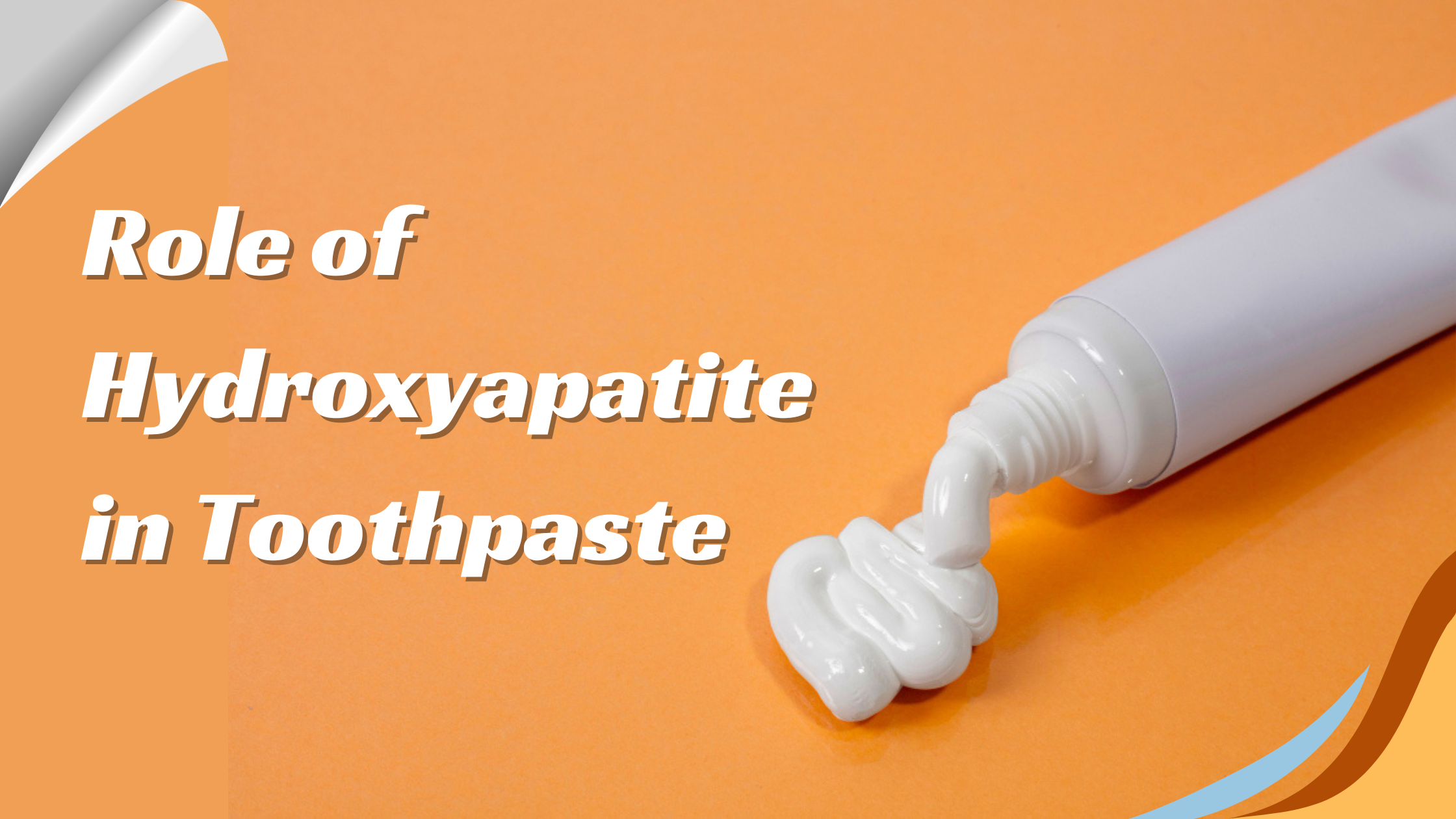Enamel Restoration 101: The Role of Hydroxyapatite in Toothpaste
Enamel restoration is crucial for maintaining strong and healthy teeth. The outer layer of our teeth, enamel, acts as a protective shield against decay and damage. However, poor oral hygiene, acidic foods, and certain medical conditions can weaken enamel over time, leading to dental problems like cavities and sensitivity. Fortunately, advancements in dental care have introduced innovative solutions for enamel restoration, including hydroxyapatite.
Hydroxyapatite, often HA, is a naturally occurring mineral form of calcium apatite. It is the main component of tooth enamel and bone. In recent years, hydroxyapatite has gained attention in dentistry for its remarkable properties in promoting enamel remineralization and oral health. But what exactly is hydroxyapatite, and how does it contribute to enamel restoration? Let’s delve deeper into this fascinating topic.
Understanding Hydroxyapatite
Hydroxyapatite crystals form a significant part of our teeth and bones, providing strength and resilience to these structures. These crystals consist of calcium, phosphorus, oxygen, and hydrogen atoms arranged in a specific crystalline structure. The unique composition of hydroxyapatite allows it to bond with the natural structure of enamel, making it an ideal candidate for enamel restoration.
Researchers have recently explored the potential of incorporating hydroxyapatite into oral care products, particularly toothpaste. Unlike traditional toothpaste formulations relying on fluoride for enamel protection, hydroxyapatite toothpaste deposits a thin layer of hydroxyapatite particles onto the tooth surface. This layer helps repair microscopic defects in the enamel, strengthening and remineralizing the teeth.
The Role of Hydroxyapatite in Enamel Restoration
- Remineralization: Enamel undergoes demineralization when acids from food and bacteria attack its structure. This process can lead to the formation of cavities and enamel erosion. Hydroxyapatite toothpaste aids remineralization by supplying the necessary minerals to rebuild the enamel matrix. The deposited hydroxyapatite particles mimic the natural structure of enamel, promoting the formation of new enamel crystals and repairing damaged areas.
- Protection against Acidic Erosion: Acidic foods and beverages and stomach acids from conditions like acid reflux can weaken enamel over time. Hydroxyapatite toothpaste creates a protective barrier over the enamel surface, reducing its susceptibility to acidic erosion. By maintaining a balanced pH environment in the mouth, hydroxyapatite helps preserve the integrity of the enamel and prevent further damage.
- Reduction of Sensitivity: Tooth sensitivity is often caused by exposed dentin, the inner layer of the tooth, due to enamel erosion or gum recession. Hydroxyapatite toothpaste can help alleviate sensitivity by strengthening the enamel and sealing microscopic channels in the dentin, thereby reducing the transmission of sensations from the tooth surface to the nerves.
- Plaque and Tartar Prevention: Hydroxyapatite particles have been shown to possess antibacterial properties, effectively inhibiting the growth of harmful bacteria that contribute to plaque formation and tartar buildup. By keeping the oral microbiome in check, hydroxyapatite toothpaste promotes a healthier environment within the mouth and reduces the risk of gum disease and tooth decay.
Is Hydroxyapatite Safe?
One of the most common concerns regarding hydroxyapatite toothpaste is its safety profile. Many consumers are understandably cautious about its use since it is a relatively new ingredient in oral care products. However, numerous studies have demonstrated the safety and efficacy of hydroxyapatite in dental applications.
Hydroxyapatite is a biocompatible material, meaning it is well-tolerated by the body and does not elicit adverse reactions when used in dental products. Unlike fluoride, which has raised concerns regarding its potential toxicity at high concentrations, hydroxyapatite poses minimal risk of toxicity, even with long-term use.
Furthermore, hydroxyapatite toothpaste offers a promising alternative for individuals who may be sensitive to fluoride or wish to avoid its use for personal reasons. Its natural composition and gentle action make it suitable for all ages, including children and individuals with sensitive teeth or allergies to certain ingredients commonly found in traditional toothpaste formulations.
Incorporating Hydroxyapatite into Your Oral Care Routine
If you’re considering adding hydroxyapatite toothpaste to your oral care routine, it’s essential to choose a product from a reputable brand that adheres to stringent quality standards. Look for toothpaste formulations containing a significant hydroxyapatite concentration and are free from potentially harmful additives such as parabens, sulfates, and artificial flavors.
In addition to using hydroxyapatite toothpaste, maintaining good oral hygiene practices is key to maximizing its benefits. Brush your teeth at least twice daily, floss regularly, and visit your dentist for routine check-ups and cleanings. A balanced diet rich in calcium and phosphorus can also support enamel health and remineralization.
The Future of Enamel Restoration
As research into hydroxyapatite and other innovative dental materials continues to evolve, the future of enamel restoration looks promising. From toothpaste and mouthwash to dental fillings and coatings, hydroxyapatite has the potential to revolutionize oral health care. By harnessing the power of nature’s building blocks, we can protect and preserve our smiles for years to come.
In conclusion, hydroxyapatite plays a vital role in enamel restoration by promoting remineralization, protecting against acidic erosion, reducing sensitivity, and preventing plaque and tartar buildup. Its safety and efficacy make it a valuable addition to the oral care products available to consumers today. Whether you want to strengthen weak enamel, alleviate tooth sensitivity, or maintain a healthy smile, hydroxyapatite toothpaste offers a natural and effective solution for achieving optimal oral health. So, is hydroxyapatite safe? Yes.

















